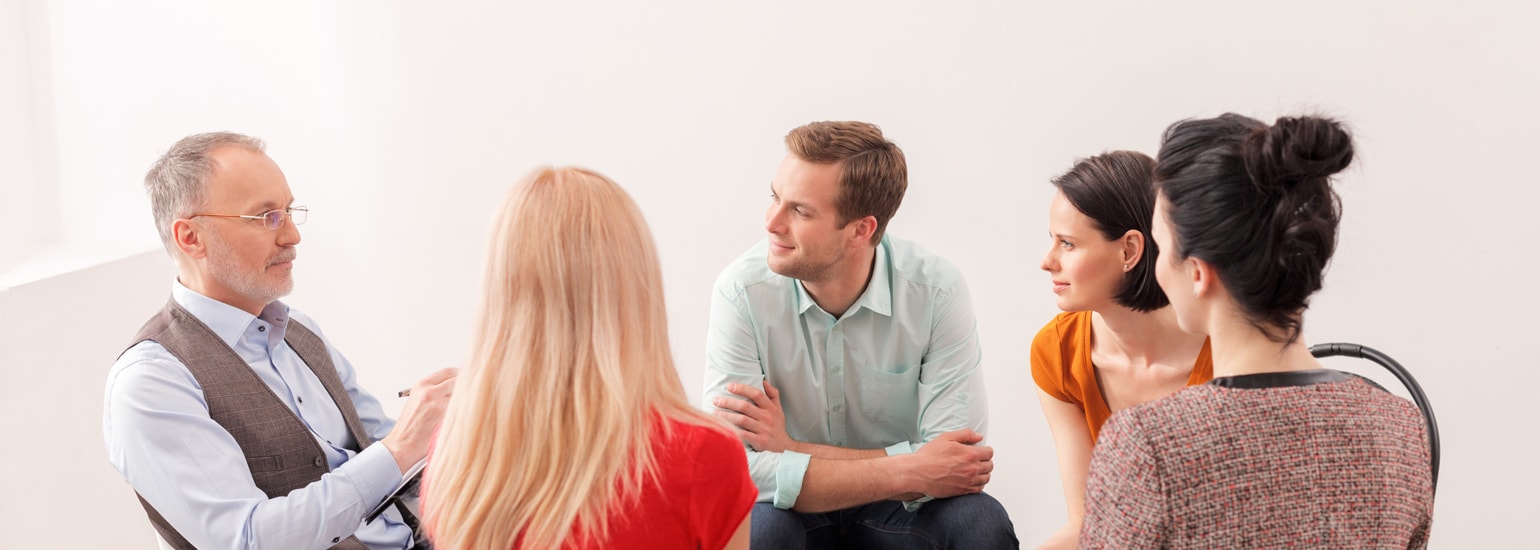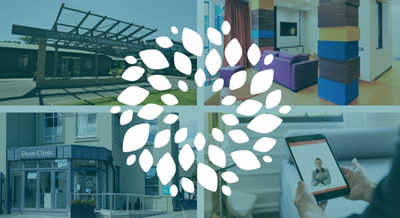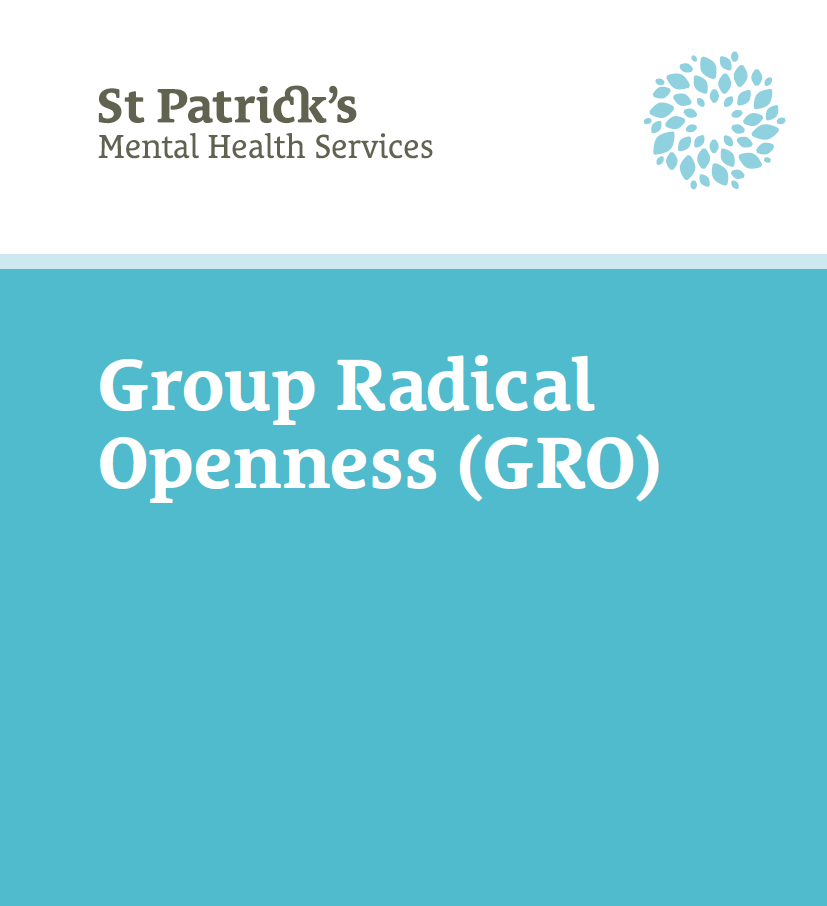Group Radical Openness (GRO) is a group therapy programme for people who have difficulties with costly overcontrol. This includes keeping others at a distance, having trouble showing emotions and a strong desire for control.
Some people develop a style of coping that leads them to keep other people at a distance and to want order and control in their lives. They may also suppress their emotions, meaning they hide their feelings from others. This way of coping is called an ‘overcontrolled’ style of coping. It develops for very understandable reasons and often shows up in early life as a way to feel safe. However, over time, it can become costly and may lead to you to having difficulties, such as a deep sense of loneliness.
How does the GRO programme work?
The GRO programme at St Patrick’s Mental Health Services (SPMHS) aims to help you develop flexibility in three key areas:
- Relationships: Improving relationships by developing connections with yourself and others.
- Rigidity: Learning to soften rules and ease harsh and endless standards for yourself and others.
- Emotions: Learning to experience and express emotions in a way that feels safe.
The programme takes place over a five-month period. It runs twice a week for 12 weeks and then once a week for the final three weeks, giving a total of 27 group sessions.
GRO is a closed group, meaning that all participants begin and end the programme at the same time. This helps you build connections and feel a sense of group support. As you journey through this programme together, you will develop understanding, awareness and insight into each person’s struggles with overcontrol.
Safety is very important to the treatment. Through a series of exercises together with the group, you will:
- work out ways to develop more intimate and connected relationships
- develop more flexibility in your life
- experience and express your emotions.
In addition to the group sessions, you attend an individual appointment after session 15 to reflect on the programme so far. You are also invited to a final individual session when the programme is over to read through your therapeutic ending letter, which is a piece of writing that outlines your journey through GRO.
While taking part in the group, you will learn how your overcontrolled style of coping was a way to protect you in your life, but is now costing you. You will take the time to validate the experiences you have had in life, while also exploring what a more fulfilling life will look like.
Who is the programme for?
The GRO programme is for people who struggle with mental health difficulties associated with harmful and costly overcontrol.
It supports people who find it difficult to form and maintain close connections with others. GRO is also for people who may find it hard to experience and express their emotions and place unnecessary standards on themselves and others.
It is a transdiagnostic group, which means that people who attend this group may have different mental health difficulties, but all share common experiences with overcontrol.
Who runs the group?
GRO is run by the Department of Psychology in St Patrick’s University Hospital (SPUH). Each group is facilitated by two psychologists and an assistant psychologist.
How are referrals made?
All participants who attend the GRO programme must be under the care of a multidisciplinary team (MDT) in SPMHS, which is a team of healthcare professionals who look after your mental healthcare and treatment. If you are interested in attending GRO, you can speak to your MDT psychologist, who will help you determine if this group would be a good fit for your needs.
All referrals to the GRO programme must come through the team psychologist. Once you have been referred, you will be placed on a waiting list based on the date of your referral. You will then be invited to a more detailed assessment for the group by a member of the GRO team. This may take some time from when you have met with your team psychologist, depending on the start dates for a new group and the length of the waiting list.
If you would like more information on GRO, you can talk to your team psychologist.






